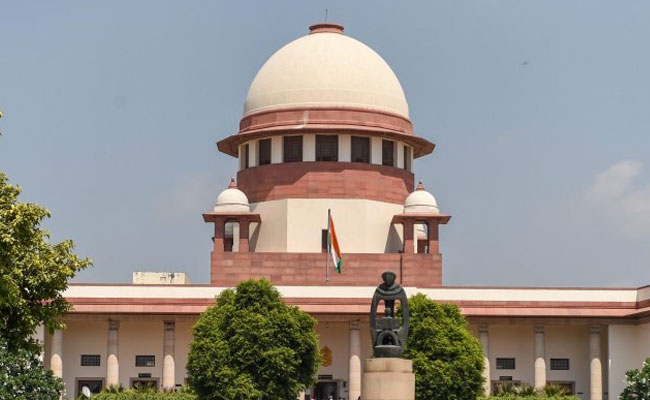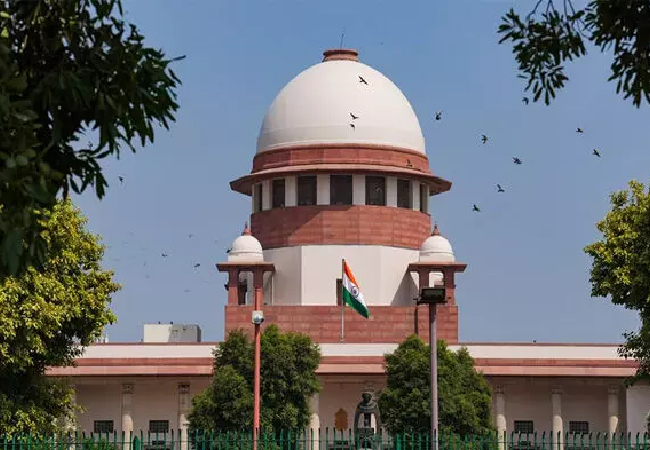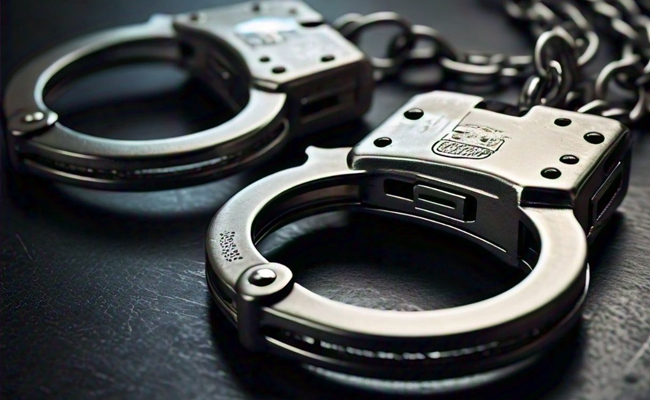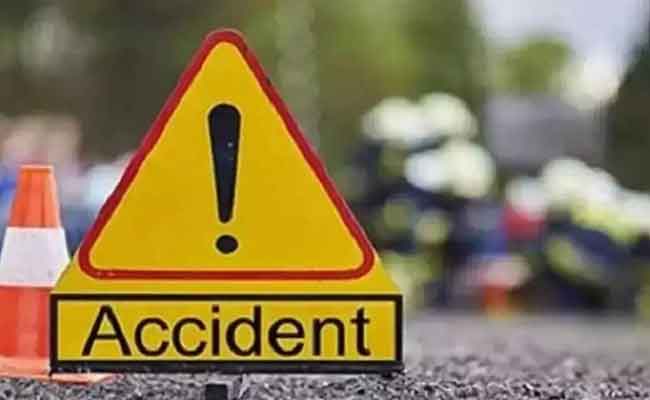New Delhi (PTI): Chief Justice of India (CJI) D Y Chandrachud on Friday administered the oath of office to Justice Ujjal Bhuyan and Justice S Venkatanarayana Bhatti as judges of the Supreme Court.
With the swearing-in of Justices Bhuyan and Bhatti, the working strength of judges in the apex court has risen to 32 against the sanctioned strength of 34, including the CJI.
The CJI administered the oath of office to the two new judges in a swearing-in ceremony held at the apex court's auditorium here.
The central government had cleared the names of Justice Bhuyan, who was the chief justice of the Telangana High Court, and Justice Bhatti, his counterpart in Kerala, for elevation as judges of the top court on July 12.
Law Minister Arjun Ram Meghwal had announced the elevation of the two judges on Wednesday.
The apex court collegium headed by the CJI had on July 5 recommended their appointment as judges of the apex court.
Born on August 2, 1964, Justice Bhuyan was appointed as a judge of the Gauhati High Court on October 17, 2011 and was the senior-most judge of his parent High Court (Gauhati).
He was serving as the chief justice of the Telangana High Court since June 28, 2022.
"During his long tenure as a judge of the High Court Mr Justice Bhuyan has acquired significant experience in diverse fields of law. He has acquired specialisation and domain knowledge in the law of taxation. He has also served as a judge of the Bombay High Court dealing with a wide spectrum of cases including taxation.
"His judgments cover wide ranging issues pertaining to law and justice. Mr. Justice Ujjal Bhuyan is a judge with a good reputation for integrity and competence," the collegium resolution uploaded on the apex court website had said.
Justice Bhatti, who was born on May 6, 1962, was appointed as a judge of the High Court of Andhra Pradesh on April 12, 2013 and was the senior-most in his parent high court.
The collegium resolution had noted that the High Court of Andhra Pradesh does not have any representation on the bench of the Supreme Court since August 2022.
Justice Bhatti was transferred to the High Court of Kerala in March 2019 and was serving as the chief justice there since June 1, 2023.
"During his long tenure as a judge of the High Court of Andhra High Pradesh and as a Judge and subsequently as Chief Justice of the High Court of Kerala, Mr Justice Bhatti has acquired considerable experience in various branches of law.
"The judgments authored by him dealing with issues in various branches of law stand testimony to his legal acumen and competence. Apart from according representation to the State of Andhra Pradesh, the appointment of Mr Justice Bhatti will provide a value addition in terms of his acquired knowledge and experience. He commands a good reputation and possesses integrity and competence," the collegium resolution had said.
Let the Truth be known. If you read VB and like VB, please be a VB Supporter and Help us deliver the Truth to one and all.
New Delhi (PTI): The Supreme Court on Tuesday sought to know if FIRs were registered after suicides of a IIT Kharagpur student and a NEET aspirant in Kota, Rajasthan, came to light.
A bench of Justices J B Pardiwala and R Mahadevan directed its registry to call for a report from both places at the earliest.
The top court noted a 22-year-old student studying in IIT, Kharagpur, was found hanging in his hostel room on May 4, 2025.
"The deceased was a three-year civil engineering student. His body was found hanging in his room in the Madan Mohan Malaviya Hall. The student was identified as Mohammad Asif Qamar from Bihar’s Sheohar District," the bench noted.
The top court went on, "The press reporting indicates that just moments before his death, he was on a video call with his friend in Delhi. This is one of those unfortunate suicides by a student for which we have constituted the task-force to work on the various issues relating to students suicide."
The top court previously ordered the formation of a national task force, headed by former top court judge Justice S Ravindra Bhat, to address the mental health concerns of students to prevent suicides in higher educational institutions.
The apex court said it was taking cognisance of the matter with a view to ascertain whether the management or administration of IIT, Kharagpur lodged an FIR with the local police station in accordance with its earlier directions.
It also took into account another case of suicide by a NEET aspirant who hanged herself at her room in Parshavanath area in the city ahead of the National Medical Entrants Examination scheduled on May 11.
"It is reported that the girl was under 18 years of age and hailed from Sheopur in Madhya Pradesh. She had been living with her parents in Kota (Rajasthan) and for the past several years, she was preparing for NEET-UG at a coaching institute," the court added.
The bench observed it was reportedly the fourteenth case of suicide by a coaching student in Kota, Rajasthan in 2025.
"Since January, 2025, a total of 17 cases of suicides by coaching students were reported in Kota last year. We would like to know whether an FIR has been registered in connection with this suicide also or not," the bench said.
The matter then was posted on May 13.
Outlining a disturbing pattern of student suicides in educational institutions, the apex court on March 24 directed Delhi Police to register an FIR and probe the suicidal deaths of two IIT-Delhi students from the SC/ST community.
Saying it was "high time" that it took cognisance of the "serious issue", the court ordered formulation of comprehensive and effective guidelines to address and mitigate the underlying causes contributing to such distress among students.
The bench directed the Centre to deposit Rs 20 lakh with the registry within two weeks as an outlay for the initial operations of the NTF.
Noting a "disturbing pattern" of student suicides were being reported from various educational institutes, the apex court said these tragedies underscored the urgent need for a more robust, comprehensive and responsive mechanism to address various factors which compel students to resort to taking their own lives.





